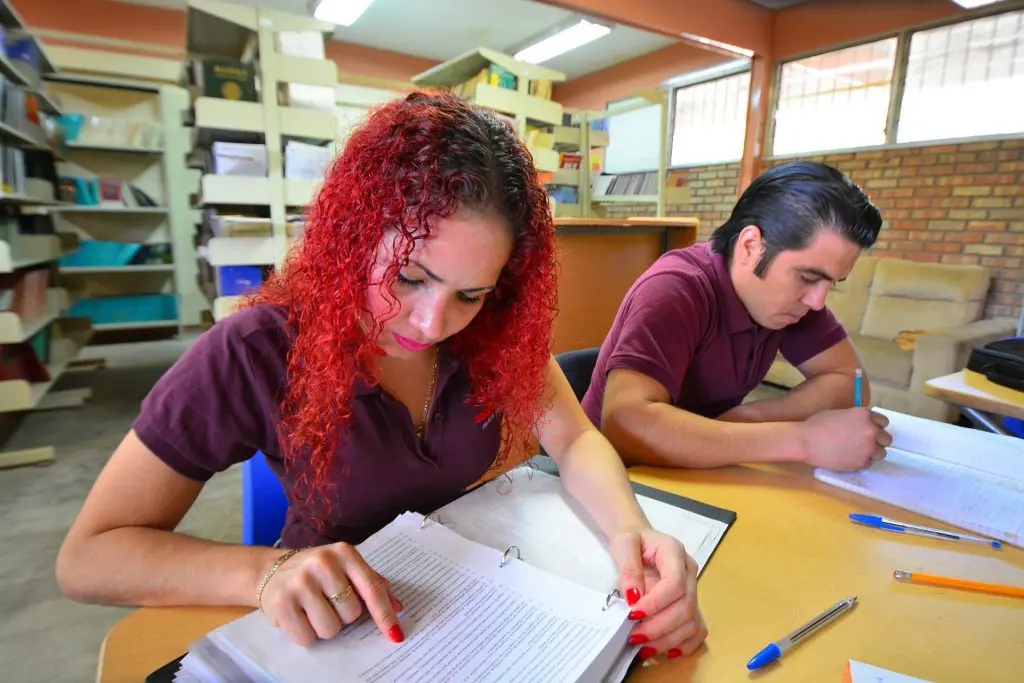Are you interested in having better chances of getting accepted into a top college? Curious what is the International Baccalaureate (IB) program?
The International Baccalaureate (IB) diploma can help you achieve your goals by preparing you for advanced college education.
Still not sure what IB diploma entails? You’ve come to the right place!
This article is an introduction to what IB programs are and how they can help your college applications! We are going to provide you with an overview of IB diploma requirements, the wide range of IB subjects, a list of IB program pros and cons and distinguish IB from other similar programs. By the end of this article, you will know what IB programs are and how you can use this program to strengthen your academic and personal goals.
What is the IB Program and their Philosophy?
While you may not have ever heard of the IB program, it is actually a globally recognized education program! There are over 800 IB Programs in the United States (U.S.) and over 4,000 schools offering IB programs across the world. The IB program provides high school students with opportunities to develop their personal and professional skills through the form of coursework, community service, and essay development.
It gives the foundational skillset to succeed in college and show college application reviewers what you are truly capable of!
The philosophy of IB programs is focused on globalizing education across the country and among a variety of students. The goal is to create education that is designed to enhance one’s personal and professional skills, creativity, and critical thinking.
The IB program builds on three core elements: (1) theory of knowledge, (2) extended essay, and (3) creativity, activity and service (CAS).
You are expected to complete an oral presentation with a 1,600-word reflection essay; you will also need to complete an independent project that informs a 4,000-word research paper. The CAS portion is meant to be an experience that cultivates your knowledge or skills via acts of service, arts, or physical activity (e.g., volunteerism).
Over the course of two years in the IB program, high school students are required to complete six subject groups from a wide selection with the option of taking them at standard level or higher level. A student must take at least one course from each of the six subject groups as part of the IB diploma requirements. We will talk about these subject groups more in the section, What are the Requirements to get an IB Diploma.
What is the Goal of IB as an Organization?
The goal of IB as an organization is to promote intercultural understanding and respect across cultures and national identities to ultimately create a more peaceful world. IB as an organization strives to cultivate students who are compassionate, critical thinkers with an abundance of knowledge and experience about cultures and practices outside of their own.
What are the Requirements to Get an IB Diploma?
Students need to complete one course out of each of the six subject groups to meet IB diploma requirements. IB diploma requirements must also include completion of at least three subjects taken at high level. Because availability of these courses varies by program, make sure to check in with your school personnel as you are planning your curriculum.
Now, what are the International Baccalaureate subjects?
The IB subjects include a total of six subject groups; each subject group has a list of classes to choose from that can be taken at standard or high level. We’ve provided all these details below.
Studies in language and literature
You have 50 languages to choose from for studies in language and literature! The classes are designed to have you appreciate languages across a variety of mediums, including written language, performance, and literature.
- Language A: literature
- Language A: language and literature
- Literature and performance
Language acquisition
Language acquisition requires students to learn different languages from a culture outside of their own. Typically, you will have 17 languages to choose from!
You can select courses from the following list:
- Modern languages
- Language ab initio (beginners)
- Language b (intermediate)
- Classical languages
- Latin
- Classical Greek
- Other courses that are available to you online
- Spanish ab initio
- Spanish B SL
- Mandarin ab initio
- French ab initio
Individuals and societies
Have you ever wanted to learn more about the human experience? Courses in individuals and societies cultivate students’ critical appreciation for the human experience, behavior, and social and cultural environments. You can choose one to two courses from the following list:
- Business management
- Economics
- Geography
- Global politics
- World religions
- Social and cultural anthropology
- History
- Information technology in a global society
- Psychology
- Philosophy
Sciences
Coursework in sciences is designed to explore theories or techniques to expand your critical thinking skills and systematic approaches and understanding to basic science. You can select courses from the following list:
- Biology
- Computer Science
- Chemistry
- Design Technology
- Physics
- Sports, exercise and health science
Additionally, there is an option to take environmental systems and societies as an interdisciplinary subject; always check with your school first about course availability.
Mathematics
Mathematics are designed to cultivate mathematical knowledge, reasoning, and critical thinking skills. You can select courses from the following list below:
- Mathematical studies (SL)
- Mathematics (SL)
- Mathematics (HL)
- Further mathematics (HL)
- Mathematics: analysis and procedures (SL or HL)
- Mathematics: applications and interpretations (SL or HL)
Arts
Arts is a great way to foster creativity in your education. Classes have you explore diverse mediums across places, time, and culture. You can select courses from the following list below:
- Dance
- Music
- Film
- Theatre
- Visual Arts
What Makes IB Different Than Normal High School Diplomas?
Now, at first glance, these classes might seem similar to normal high school courses.
However, courses in the IB program are very different than those completed for a normal high school diploma.
How are they different?
First, IB programs are designed with the philosophy of building a better world with more intercultural understanding, respect, and critical thinking approaches. Their curriculum aims to have students learn how to learn; this is in direct contrast from normal high school classes that typically teach students to learn materials from a textbook that have historically ignored narratives from marginalized cultures.
IB programs expose students to cultures outside of their own with the intention of developing an appreciation, a cultural understanding, and an application of those elements to their own ideas in writing and presentations. It further encourages students to be active members of their community as a means to learn rather than to obtain credit.
What are the Benefits of the IB Program?
The benefits of the IB program are extensive; but to not present any bias, we will provide you with a brief list of IB pros and cons to help you decide what is best for your goals.
IB Program Pros
- Curriculum expands on both your personal and educational development
- Assignments are completed in the form of essay, writing, presentations
- Costs of the program are much less than college tuition
- Looks great on your college application
- You have the option to use your passing grade on IB exams for college credit
IB Program Cons
- Because there are no standardized tests, this may be considered a lot of work; much more work than high school classes
- Registration costs and examination costs
- More time-consuming
- IB courses don’t get the same weight on your GPA as other courses
- Not all colleges award credit for passing IB exams
We go over 25 pros and cons of the IB program in this post.
Does Being in IB Help Boost Your College Chances?
Many former students consider IB programs the best preparation for college! IB programs can ultimately shape your skills for advanced courses by honing skills in critical thinking, creativity, writing, global perspectives, and exposure to cultures outside of your own.
We believe that IB programs can help boost your college chances by cultivating these core elements of learning that extend beyond standardized curriculum and exams.
You also have the opportunity to receive college credit for IB classes taken at a higher level. However, these qualifications will vary by institutional policies.
Is IB More Difficult Than the AP Program?
Choosing between advanced placement (AP) and international baccalaureate (IB) programs can be a difficult decision. Let’s walk through some of the shared components of IB and AP and then distinguish IB vs AP.
If you’re looking for a comprehensive breakdown of IB vs. AP, check out our post on this here.
IB vs. AP – Similarities of the Two Programs
- Both offer college level courses to high school students.
- Both challenge students beyond their current high school education to prepare them for advanced coursework.
- Both are exceptional assets to college applications.
- Both keep advanced students engaged in coursework and focused on academic goals.
- Both provide the opportunity to receive college credit after examination. This means that you can actually waive coursework in college from those you take through these programs.
- Both are offered to all students.
IB vs. AP – Differences Between the Two Programs
Now that we’ve described the similarities between IB and AP; let’s discuss the differences.
Philosophy
First, IB and AP have completely different philosophies. IB programs aim for a globalizing world to promote enhanced education for all students across the country. On the other hand, AP programs are designed to prepare students for college. While this is not exclusive to AP programs, IB programs have a much broader goal of impacting the world as a whole.
Program design
Another significant difference relates to the way each program is designed. AP programs are not designed around any particular framework, model, or principle. You generally just take any number of courses, pass the exam, and earn your college course credit. In contrast, IB programs have a set criterion, with a particular number of coursework needed to meet IB diploma requirements.
Goals
With IB programs, your goal is to obtain a globally recognized diploma; while AP programs are only specific to earning college credit in high school. The difference in goals lies in the philosophy behind each program.
Examination
AP exams typically test students with a standardized exam; IB classes are more integrative learning, requiring students to carry out research projects, reflective essays, and hands-on experiential learning experiences that cultivate their understanding of topics.
For instance, the final exam on an AP will likely be a multiple choice exam with 1-2 essay questions. The final exam for the IB program will ask you to analyze a case study to assess your level of critical thinking.
IB exams and fees are more expensive than AP programs, but still much less than college tuition. However, this should not deter you from your decision. Make sure to look into the details we shared in the section, How Expensive are IB Exam Fees.
Curriculum
AP classes focus on text material, with only one requirement in completing the coursework. IB is more well-rounded education; there is a significant focus on writing, critical thinking, language acquisition, extracurricular activities, research, and extended essays.
We go over this great debate of IB vs. AP more in-depth in this post here.
What’s the IB Middle Years Program (MYP)?
Although the IB program is designed specifically for high school students; there are other IB programs that are tailored to middle school students or early adolescents.
The IB Middle Years Program (MYP) are designed for students between the ages of 11 to 16. While college credit is not an option, students are eligible for an IB MYP certificate and demonstration of course results. Both of these are equally important when you want to demonstrate your potential for higher performance.
The MYP curriculum has eight international baccalaureate subject groups required to complete instead of six. Middle school ages focus on subjects that are traditionally taught during middle school with the addition of technology and a foreign language.
Parents: if you’re looking for college admission tips for your middle schooler, read our post on that here.
How Expensive are IB Exam Fees?
The upside is that it does not cost anything to become an IB student. You are able to access these educational courses for free. This is true if you do not want to commit fully to the diploma program.
However, if you are interested obtaining the diploma and examination, there are some costs. IB registration is around $160. Additional fees are required to take the IB assessment tests; you have fees ranging from $110 to $170, depending on the number of assessments you take and on your institution.
So, if you take an exam for all six of the international baccalaureate subject groups, then your final fees would be $110 x 6 = $660.
Importantly, the IB exams are what lead to college credit if you get a passing score. So, you’ll want to consider your time and resources when deciding on an IB program.
The good news?
This is much less expensive than what an actual college course would cost! There are also many schools that have their own financial aid program for IB diplomas, which can cover the costs of registration and exams. We cannot stress this enough—check in with your IB schools to see what is available to you!
Wrapping Things Up: Key Takeaways on IB
IB programs are a great way of making your college application even more competitive to college admissions committees! Take the opportunity to obtain college credit and to prepare yourself for advanced college coursework. The main takeaway to remember is that IB programs are preparing you to think globally, critically, and with compassion about a wide range of topics and cultures.
At this point, you’ve learned what the IB program is, its philosophy and goals, and the IB subjects for IB diploma requirements. We also discussed the IB program pros and cons to help you distinguish between IB and other similar programs. You should know exactly how to apply IB programs for your personal and academic goals!
Looking for more high school study tips? We’ve got a ton more free comprehensive guides here.
You may also find the following high school study tips interesting:
> The Ultimate IB Classes List




















